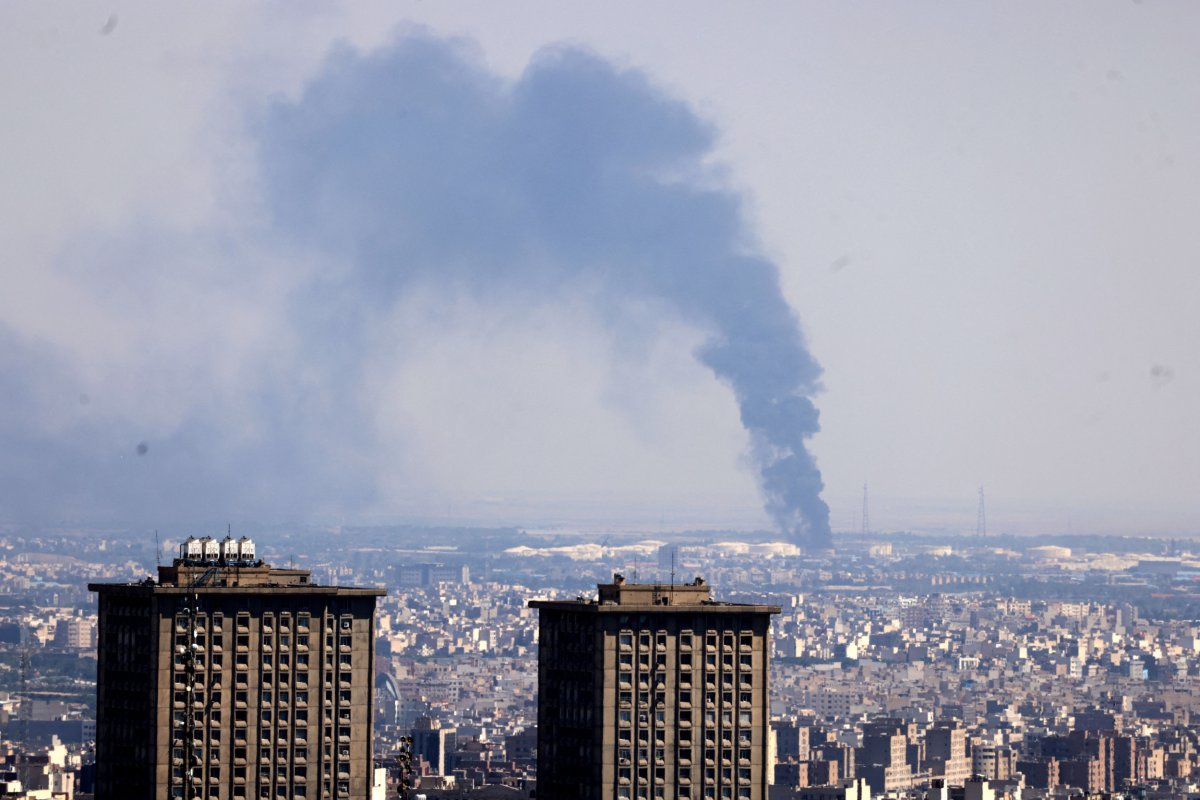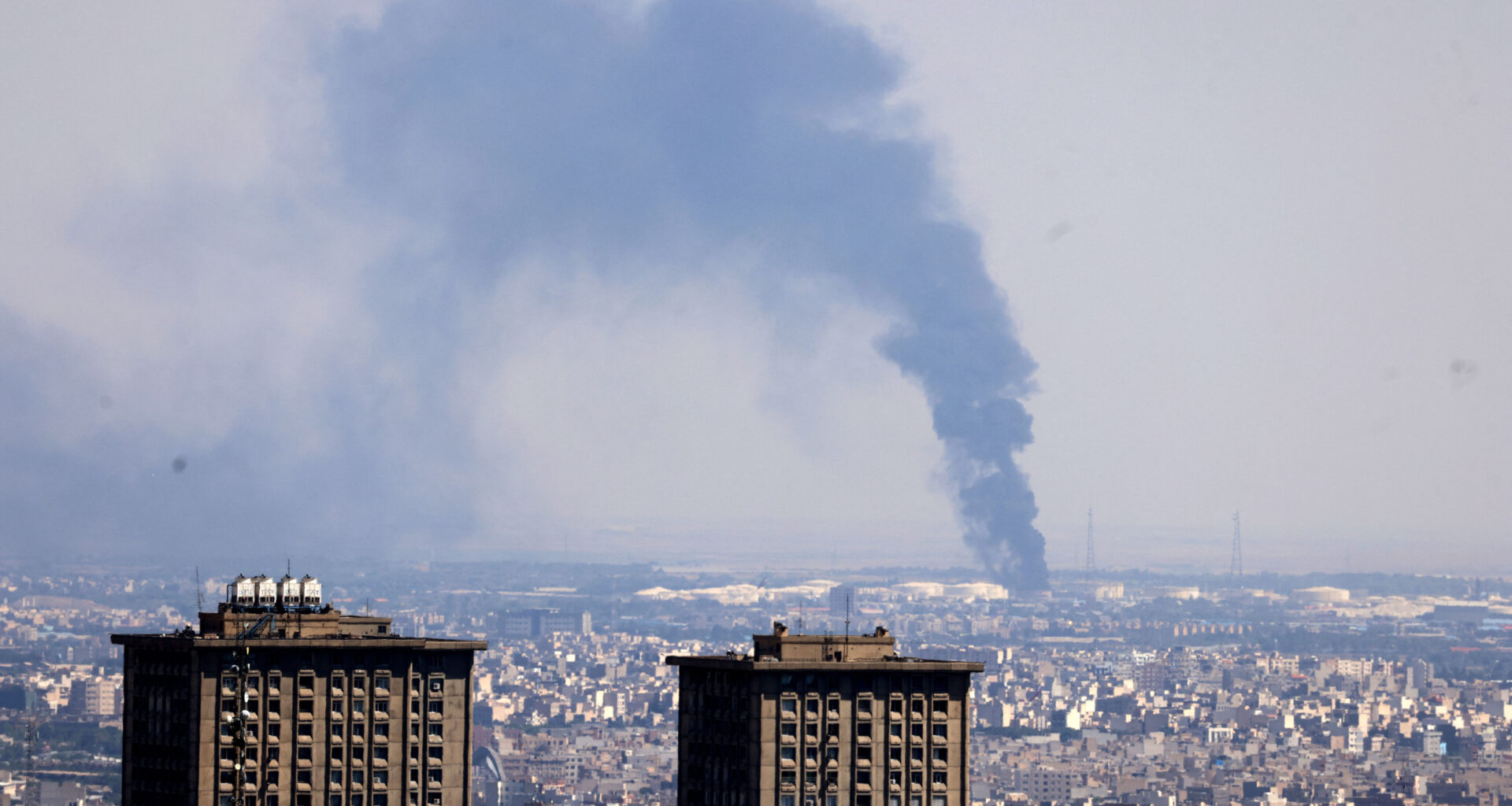President Donald Trump will make a decision on whether or not to have the United States join Israel’s war with Iran “within the next two weeks,” a senior White House official said Thursday.
“He will make a decision within the next two weeks” about taking a direct military role in the conflict, White House press secretary Karoline Leavitt told reporters at a press briefing.
Leavitt said the decision was based on Trump’s view that Iran “may” or “may not” agree to a diplomatic resolution through negotiations over its nuclear program, Leavitt said.
Why It Matters
The remarks come as Iran, Israel and America’s allies wait for Trump’s decision on whether to get involved in the escalating war in the Middle East. Trump has called on Iran’s “unconditional surrender” in recent days, something the Iranian regime has rejected.
Israel’s strikes have killed at least 585 people in Iran—including 239 civilians—and wounded another 1,300, according to a human rights group that has long tracked the country, Washington-based Human Rights Activists.
Iran’s government has not offered overall casualty figures. Israel has said 24 people have been killed since Friday and 500 more have been wounded, according to Israeli officials.
However, Israel’s stated goal of destroying Iran’s nuclear capabilities has faced significant difficulty as those facilities are located within a mountain or deep underground, potentially requiring assistance from the U.S. and its multi-ton bunker buster bombs.

Smoke billows over Tehran, Iran on June 17, 2025.
Smoke billows over Tehran, Iran on June 17, 2025.
ATTA KENARE/AFP via Getty Images
What To Know
Leavitt addressed concerns about potential U.S. involvement in the Iran-Israel conflict by sharing Trump’s statement with reporters on Thursday.
Washington had planned for further talks with Tehran on Sunday, but the exchange of strikes between Israel and Iran over the weekend prevented those talks from taking place. Instead, European and Iranian foreign ministers will meet in Geneva on Friday for the first diplomatic talks between Iran and Western powers since Israel launched its attack.
Leavitt, in response to a reporter’s question, said that U.S. Special Envoy to the Middle East Steve Witkoff is not currently scheduled to take part in those talks, but also added she would speak with him and provide a further update if that plan were to change.
Additionally, Leavitt said the U.S. and Iran remain in communication, which may lead to further talks between the two sides during the two-week window Trump has laid out.
Leavitt refused to provide further details and “get ahead” of the president on what may happen next, consistently referring to his brief statement in response to other questions.
German Chancellor Friedrich Merz earlier this week said the Israeli attacks on Iran had significantly weakened Iranian leadership and may have undermined any chance to regain its former strength, leaving the country’s future “uncertain.”
Brad McGurk, a former Middle East & North Africa coordinator for the National Security Council, told CNN‘s Anderson Cooper that he has “low expectations” that the meeting between European and Iranian officials will produce a result, but he urged Iran’s leadership to find a “diplomatic offramp” for the conflict.
What People Are Saying
President Donald Trump earlier this week wrote on Truth Social: “We know exactly where the so-called ‘Supreme Leader’ is hiding. He is an easy target, but is safe there – We are not going to take him out (kill!), at least not for now. But we don’t want missiles shot at civilians, or American soldiers. Our patience is wearing thin. Thank you for your attention to this matter!”
Ayatollah Ali Khamenei, in a national address, in part: “We warn America of the consequences of engaging in war, because it will suffer severe damage if it decides to do so. War is met with war, bombing with bombing, and strike with strike.”
What Happens Next
Trump has indicated he is weighing potential U.S. involvement in the conflict, to which Iranian officials have pledged retaliation. Meanwhile, Russia has warned the U.S. against getting involved at the risk of prompting a wider regional conflict.
This article includes reporting by The Associated Press.
